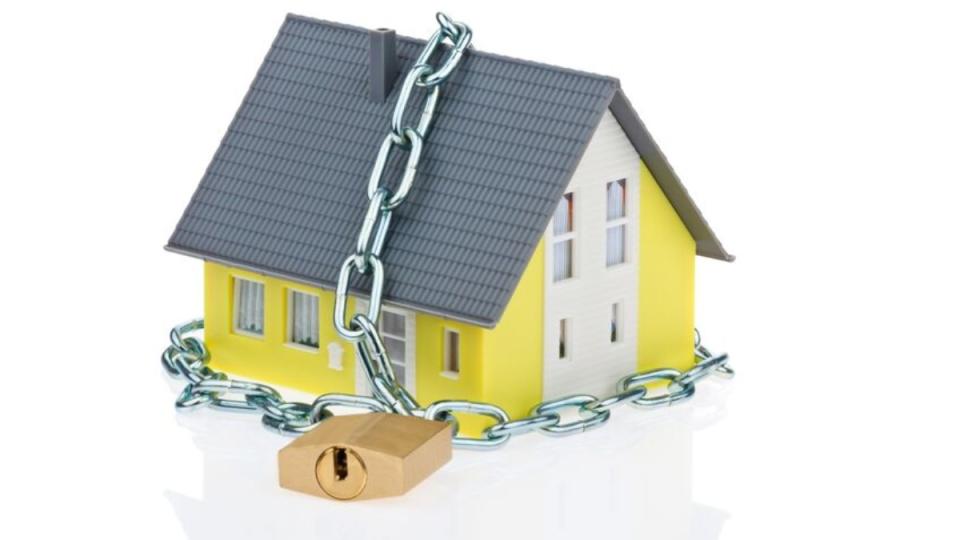Refinancing Your Home Loan In Singapore: 3 Reasons Why Lock-In Periods Aren’t Always Bad

The term ‘lock-in period’ often has a negative connotation when the time comes to refinance home loans. The lock-in period is often seen as a clause to limit options, prevent prepayments and impose additional charges and penalties on homeowners.
Although this is a common perception in Singapore, the reality is that when you refinance home loans, the restrictions they impose aren’t always a bad thing.
If you’re in the process of applying for a home loan and you don’t know whether you would accept a lock-in period for a special promotional interest rate or not, this article might be able to help you decide.
We’ll explain what lock-in periods are, and we’ll also discuss the stereotypes about lock-in periods and prove how some could even be useful for you.
Home Loan Refinancing: What is a Lock-in Period?
A lock-in period is very common in the mortgage realm. As its name suggests, the lock-in period is the period of time during which you are contractually obliged to remain with a lender, as a condition for receiving a particular rate, discount, or promotional perks.
The duration of the lock-in period is usually two to five years. During this time, you cannot redeem or refinance your loan – if you do, you will need to pay a penalty fee.
Stereotypes about Lock-in Periods and Why They Aren’t Always Bad
Here are some of the most common stereotypes or misconceptions people have of refinancing their home loans with lock-in periods as well as some reasons why they aren’t that bad at all for you.
1. Lock-Ins Won’t Let You Refinance Your Mortgage or Sell Your Property
This is not true. In fact, there are some bank packages that waive penalty costs if you sell your property! You can see which bank loans offer this perk on PropertyGuru Finance, where it will be indicated as ‘waiver due to sales’.

You can still sell or refinance your home loan if your package does not include waivers. The only catch is that you must pay the penalty fees.
But this isn’t always a bad thing. More realistically, whether or not lock-in periods prohibit you is less relevant than whether you can or need to sell or refinance your home loan within the lock-in period in the first place.
For example, if you’re buying an HDB flat, the Minimum Occupation Period (MOP) of five years for flats you have to observe is longer than most lock-in periods (two to five years), so the lock-in period is not relevant.
It’s also quite rare to need to refinance home loans or sell your home in such a short amount of time that the lock-in comes into play unless it’s a rare emergency or crucial circumstance. Besides, this might not matter to you at all if you’re someone who wants to stick with one loan or one house for life to save yourself from hassle.
2. The Lock-In Period Isn’t Worth It Because Pre-payment Penalties Are High
Not really. Banks charge a typical penalty of 1.5% of the remaining or redeemed loan amount for refinancing, selling a property, or paying off your mortgage earlier than agreed. While this may sound too much, because, for example, 1.5% of the $500,000 loan amount is $7,500, you’ll realise that it is actually very possible to refinance, pay the penalties and still save significantly on long-term interest costs.
Of course, if the difference in the interest rates is marginal, then it may not make sense to pay the penalties. However, it’s totally possible for the difference to be big enough, especially if market rates are low.
3. There’s No Real Benefit in Lock-In Periods
Some people easily push back on lock-in periods because they think that at the end of the day, they offer no real advantage. While lock-ins are often considered as one-sided prudence measures for banks to protect themselves in exchange for cheaper deals that may lead to losses for them if you end the loan or refinance earlier, it’s not true that they offer no real benefit on your end.
In fact, some of the cheapest home loans usually come with lock-in periods. Many fixed-rate packages, which offer borrowers peace of mind of a stable interest rate and predictable monthly repayments, also come with lock-in periods.
[ArticleCallout]{ “title”: “Fixed Rate Home Loans in 2023: A Way to ‘Escape’ Rising Interest Rates?<br><a href=\u0022https://www.propertyguru.com.sg/property-guides/author/editorialsg\u0022></a>”, “excerpt”: “Read more here.”, “link”: “https://www.propertyguru.com.sg/property-guides/pgf-fixed-rate-home-loans-mortgage-singapore-69485”, “image”: “https://img.iproperty.com.my/angel/1110×624-crop/wp-content/uploads/sites/3/2022/08/fixed-rate-home-loan-cover-image-interest-rates.jpg” } [/ArticleCallout]
As mentioned above, lock-in periods aren’t that long. And if you aren’t planning on paying off your loan, refinancing, or selling your home in the next few years, then the amount you can save on interest fees could be worth it.
Some other benefits you can enjoy include lower fees on subsidies, and not paying for the usual charges related to refinancing or selling a home.
Find the Right Home Loan With A Suitable Lock-in Period with PropertyGuru Finance
As you can see, home loans with lock-in periods could also be useful, but there are some circumstances where they could still be limiting and disruptive. But either way, it’s safe to say they’re not bad all the time.
If you’re still unsure about what type of mortgage would be best for your financial situation, seek advice from PropertyGuru Finance’s Mortgage Experts as they can recommend the best options for you and also advise whether or not you should get a loan with a lock-in period.
Chat with us on Whatsapp Fill up an online form
Refinance Your Home Loan: Mortgage Makeover Month
It’s time to transform your mortgage for the better! Follow the #MortgageMakeoverMonth to assess your home loan situation and discover the best ways to maximise your savings.
If you would prefer to meet our Mortgage Experts in person, take advantage of our Mortgage Makeover event happening on 25 March 2023. The half-day event invites you to learn more about home loan refinancing from our mortgage experts, get a free mortgage health check and a complimentary consultation so that you can walk away with more savings in your pocket. Register now for free!
Disclaimer: Information provided on this website is general in nature and does not constitute financial advice.
PropertyGuru will endeavour to update the website as needed. However, information can change without notice and we do not guarantee the accuracy of the information on the website, including information provided by third parties, at any particular time. Whilst every effort has been made to ensure that the information provided is accurate, individuals must not rely on this information to make a financial or investment decision. Before making any decision, we recommend you consult a financial planner or your bank to take into account your particular financial situation and individual needs. PropertyGuru does not give any warranty as to the accuracy, reliability or completeness of information which is contained on this website. Except insofar as any liability under statute cannot be excluded, PropertyGuru and its employees do not accept any liability for any error or omission on this website or for any resulting loss or damage suffered by the recipient or any other person.

 Yahoo Finance
Yahoo Finance 

